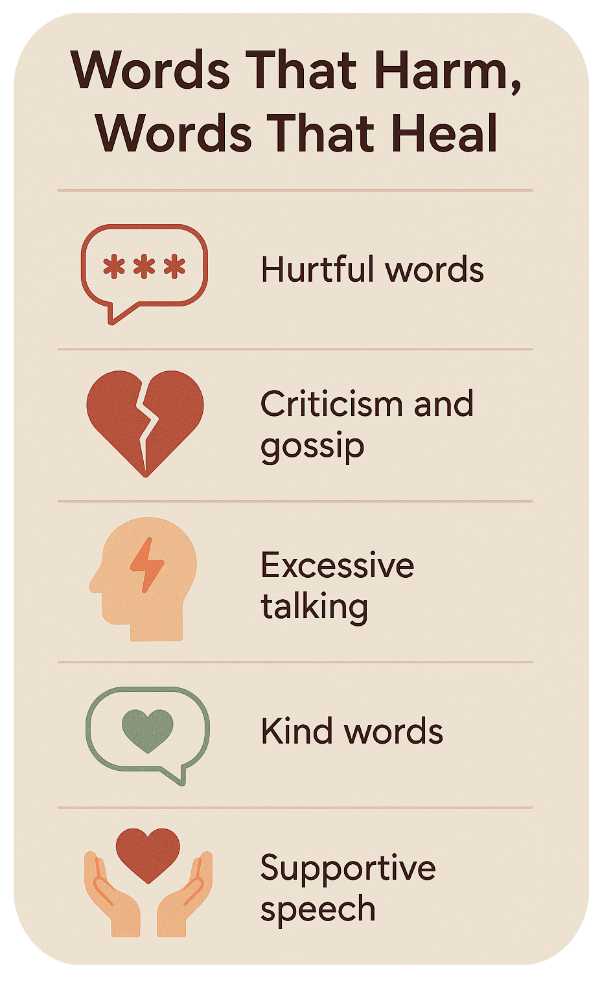Words That Harm, Words That Heal:
Speech as Spirit Work
In both Western and Eastern traditions, words are more than sound—they shape perception, influence emotion, and even affect physical health. In Chinese culture, the spoken word has long been seen as a reflection of one’s shen (神), or spirit. The Analects of Confucius emphasize the importance of zhèngmíng (正名)—the rectification of names—not just in governance, but in personal conduct. To speak correctly, truthfully, and appropriately is to live in harmony with the Dao.
Modern science increasingly affirms this ancient view. Studies have shown that harsh or critical speech can increase cortisol levels and activate areas of the brain associated with threat response, particularly the amygdala. A 2007 study in NeuroReport found that negative self-talk and criticism—even when not directed at oneself—can cause measurable stress responses in the body. In contrast, kind and affirming words have been linked to increased oxytocin, sometimes called the “bonding hormone,” which supports emotional regulation and connection.
Traditional Chinese Medicine (TCM) considers the heart the home of the shen. When speech becomes sharp, scattered, or excessive, it may be a sign that the heart spirit is disturbed. Chronic exposure to hostile language—whether from others or within one’s own inner dialogue—can disrupt sleep, contribute to anxiety, and make emotional regulation more difficult. Healing words, by contrast, can calm the spirit, strengthen relationships, and even support recovery from illness.
Speech also has weight in interpersonal harmony. In Daoist texts, the ideal person does not speak excessively and avoids argument. Chapter 56 of the Daodejing says, “Those who know do not speak; those who speak do not know.” While this doesn’t mean silence is always best, it suggests that words should be chosen with care, used with intent, and allowed to settle. The right phrase, spoken at the right time, can restore trust, ease grief, or diffuse anger.
In practical terms, healing speech begins with listening—both to others and to oneself. It means noticing the tone behind the words, the tension in the chest when gossip begins, or the heaviness that follows a careless remark. Cultivating mindful speech is a form of spirit work. It isn’t always easy, but it aligns with a central aim of yangsheng (养生): to preserve life through balance.
Whether in conversation with others or the quiet inner monologue of daily life, words can serve as medicine or toxin. They can uplift or diminish, calm or provoke. The choice is ours, moment to moment.
In the end, we don’t need to speak less, but speak with more awareness. When the tongue aligns with the heart, and the heart with the spirit, words become instruments not only of communication—but of care.






